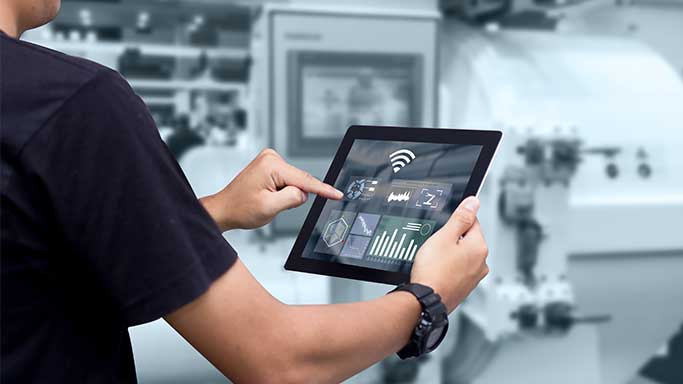Digital Manufacturing and the Smart Factory in 2021


From operational intelligence to additive manufacturing, mass customization and speed – digital manufacturing is changing the way companies manufacture products through the use of digital technologies that allow for far greater control and adaptability to the way things are conceptualized and produced.
Digital manufacturing is a key element of the Fourth Industrial Revolution and is defined as an integrated approach to manufacturing – bringing together physical machines, data and human beings to transform the manufacturing process. It’s about companies leveraging digital technologies to assist and benefit all aspects of operations, from streamlining production to providing greater data intelligence insights that can be used to adapt various capabilities and outputs.
The benefits of digital transformation in manufacturing are significant. From faster production to lower costs, closer to reality testing, real-time inventory monitoring and an ability to predict market success. Companies who embrace digital manufacturing have the opportunity to be far more agile and competitive than those who still rely heavily on traditional manufacturing.
Source:Unleashed Business Tips Date: June 03, 2021
Implications for Costa Rica
Costa Rica stands out among the leading countries in the world for digital, innovative, creative products and services with high added value. The Costa Rican offer in information technology considers a wide range of digital systems which stand out as one of the alternatives with the highest demand today.
It should be noted that the country is classified as the No. 1 exporter of high technology in Latin America, since it has developed companies that offer specialized software services, APPS development, digital content production, the cloud and technical support, among others. Costa Rican talent is guiding towards customer service, quality and innovation, which make the country’s offer unique. Additionally, 88% of the companies in the sector have experience in international markets such as the United States, Panama and Guatemala, which stand out among the main export destinations. In addition, Costa Rica ranks as the second country in innovation in all of Latin America according to the Global Innovation Index (WIPO).
If you are interested in learning more about Costa Rica’s ICTs and world-class standards, please let us know at newyork@procomer.com
Horario: De lunes a viernes de 8:00 am a 5:00 pm
Atención general: De lunes a viernes de 7:00 am a 4:00 pm
Atención de trámites personales (Ministerio de Salud): De lunes a viernes de 7:00 am a 12:00 md y de 1:00 pm a 4:00 pm
Dirección exacta: 100 Oeste, 150 Norte y 75 Oeste del ICE en Sabana Norte, San José. Edificio de dos plantas, rotulado.
Notifications